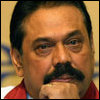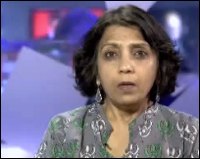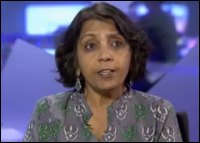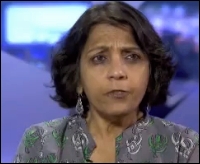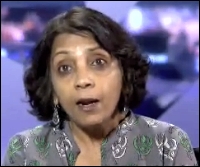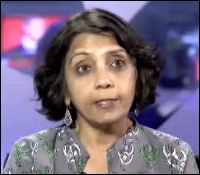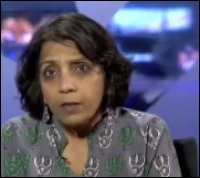Sørbø’s stand on the failed peace process was that “there was no excuse for not anticipating them, or for lacking a strategy to deal with them,” as there were patterns and structures and some of them were “old tricks in the Sri Lankan book.”
Coming out with many ‘If’s, Solhiem defended why Norway could not withdraw.
The following were the main thrusts implied in Solheim’s speech:
Bailing out Colombo and its abettors from intentional or premeditated part of the crimes committed.
Placing the main blame on the LTTE for the end.
Beginning a PR exercise on behalf of Colombo and ‘counterinsurgency’ elements of the world to make Eezham Tamils accept defeatism, to depoliticize the diaspora, to blunt their struggling spirit and to disown international responsibility in favour of Rajapaksa’s ‘home-made genocide,’ ultimately to ‘consolidate’ the premeditated ‘victory,’ in the engineering of which Erik Solheim-steered peace process played a main role.
* * *
Mr. Solheim’s speech was a carefully thought out psy-op and is a forerunner to the PR exercises that would be undertaken by Rajapaksa and his ‘friends’ in the world Establishments following the release of the LLRC hoodwink, political observers predict. Sri Lanka has already hired a PR firm for this purpose, Colombo media reports say.
Solheim sounded like Rajapaksa’s “past is past” in ‘philosophically’ talking on the ‘chance’ factor in history, but the rest of the speech betrayed his ‘counterinsurgency’ fangs.
One of his ifs was the Karuna factor. Who ever was behind the militant split caused by Karuna factor, the West and Norway promoting an ideological split within the LTTE during the peace process is now becoming more and more clear. To what extent the dividing setup aimed at blunting the goal of Tamil independence and saving the Sri Lankan state continues in postwar times too is for the Eezham Tamils to look around and find out.
Solheim talked about the murky cases of Rajiv and Kadirgamar assassinations for the LTTE losing the support of India and the international community. But, whether his political philosophy upholds such individual assassinations justifying the genocide of an entire nation is the crucial question. Solheim, like the other engineers in the world Establishments never accepts there was and there is genocide.
In answering a question about his partiality in accusing the assassinations during the peace process, Solheim citing the case of Kadirgamar was not doing justice to the sequence.
He also came out with a dangerous theory, perhaps that of the neo-liberal states of today, implying that in international reckoning moral and political values are applicable only to non-State actors while States are licensed for wrong doings.
In the liberal democracies of the past, politicians and diplomats resign when they fail. But whether neo-liberal or ‘Asian model,’ people sitting in the Establishments today are the same in refusing to accept wrongs or failures. Perhaps the only recent exception was the Fox case, but Solheim had an appreciative tone in talking about the ‘contributions’ of Fox to Sri Lanka.
* * *
After talking about star-crossed and LTTE blundered failure of the Tamil militant struggle, Solheim was looking forward to IC discussing with Rajapaksa, harping on his ‘magnanimity in victory.’
Solheim wanted to depoliticize Tamil diaspora by vesting leadership with TNA that is prepared for any ‘nondescript’ solution.
There was no difference between what Rajapaksa was telling and what Erik Solheim was speaking.
LTTE losing, SL winning was Norway failing, was the observation of the evaluation team leader, Sørbø. But consolidation of genocidal Sri Lanka’s victory is what seems to be perceived by Solheim as his personal vindication and success of his mission.
Solheim warned against any renewed militant struggle. In the mean time, many of the intelligence agencies in the West are also now keen in knowing whether there would be a militant resurgence. The way the Establishments are approaching the national question of genocide-afflicted Eezham Tamils, the intelligence agencies are perhaps expecting the fundamental aspirations not fulfilled and as a result the worsening of the situation. Towards the end of the war, the agencies were keen in assessing what would happen if the LTTE leadership were annihilated.
* * *
Erik Solheim would have been the happiest person had Pirapaharan’s LTTE surrendered and had dropped the cause of Tamil Eelam, including the trial of internal self-determination even which the peace process could not materialize. But Pirapaharan’s LTTE chose the moral victory for the righteous cause and that is what now troubles and irks Solheim and his ilk, for unlike in the other ‘counterinsurgency’ maneuverings, in this case the Establishments nakedly stand indicted en block in the eyes of humanity. This is where the Sri Lanka–Tamil Eelam case is paradigm-setting for a global struggle of humanity.
But Solheim has a ‘contingency’ plan for that.
He knows the accountability issue will not go away. But he envisages the issue to “remain for a long time, may be for ever.” Governments cannot decide it should go away as “those issues will be kept up by non-governmental actors, by media and by many other actors,” Solheim said. This means, the Establishments or international organizations are not going to do anything.
According to Solheim, the accountability issue is the only way the Sri Lankan state is made to reach out to Tamils in finding a way of resolving the Tamil issue in Sri Lanka itself.
The irony is that even the only contingency plan the peace facilitator is able to conceive harps on the very sacrifices of the LTTE and the Eezham Tamil civilians he finds fault with.
But genocidal Sri Lanka will have its own agenda of ‘resolving’ Tamils, while Solheim and his ilk keep the accountability issue remain for long, may be for ever within Sri Lanka, and thus saving their skins from their accountability by remaining arbitrators.
Who will raise the accountability issues of Norway, India, Co-Chairs and the UN and how are they going to “reduce the impact” by reaching out to Eezham Tamils in accepting their chronic case of national question?
Sections of Eezham Tamils see some ‘openings.’ The openings actually lie in the global awareness that now justify the struggle of Eezham Tamils for their independence. This has to be harnessed in seeking global justice. The pre-emptive and counterinsurgency tactics of India and the West that don’t acknowledge the nationhood and sovereignty of Eezham Tamils are not openings but mirages.
* * *
Transcripts of the speech and extracts of the question and answer session as well as concluding remarks of Mr. Erik Solheim, during the release function of Norway’s peace process evaluation report held in Oslo on 11 November 2011:
Let me start by thanking Gunnar and his team for what I consider a very valuable, a very interesting report. Because, I have not been able to study everything at this stage, I will go through it, all the big and small issues which are covered by the report, looking into them and see to what extent I can inform what we will do to assist Sri Lanka in the future, of course may be more importantly how this can enlighten Norwegian efforts in other peace processes. Norway is involved in one way or the other, in may be 20 peace processes in the world – in very few of them if any at the moment – as the main actor as in Sri Lanka but, in supporting the parties or in supporting other international actors in bringing peace. So, it is very valuable to look into all these experiences, which you have in forward and all your comments, and we will do that.
Also, I wish to say that (smiling) this is may be the first time, most certainly it is not normal, that one involved in the peace process is commissioning a report to look into all the positives and negatives of what happened.
I broadly agree with most comments Gunnar made and I have one major reservation – let us start with that.
I think that the idea that Norway should have withdrawn from the peace process when it was clear to everyone that the government of Sri Lanka wanted a final military victory, everyone knew that, there was no doubt about in Delhi, Washington, Beijing nor in Colombo or Vanni about that, nor in Oslo. Noone was in doubt with that. But, that the idea that we should have withdrawn, I think is extremely arrogant. Why? Because the Tamil Tigers asked us to continue; the government of Sri Lanka - at least to some extent- asked us to continue; the complete civil society and all the peace groups in Sri Lanka asked us to continue; the United States of America asked us to continue; India asked us to continue; European Union asked us to continue. The idea that I, or may be Vidar Helgesen or myself, should sit in Oslo and make the decision that when everyone else in the world ask Norway to do it. It was of course under the most difficult circumstances, even when there is war, even when so many peoples are killed we should decide to withdraw. I cannot disagree more. I think it is very arrogant, because it is putting Norway far above anything else, it is about our reputation, not about what there is to do for all those who were suffering on this war. Except for that major reservation, I agree to a lot of what has been presented by Gunnar here.
If there is another, not major reservation, but some reservation is the following: we should be very cautious with determinism, believing that the outcome of some events had to be what it actually was. Richard Armitage is at the first row here and I think he and myself agree the [inaudible] that the American Independence war by George Washington could very easily have taken a completely different end: George Washington being hanged as a terrorist and the UK consolidating power for at least 50 more years in the United States. It was so close to a southern separation during the civil war in America in the 1860s, not far away, very close. You can just make a few changes in the few of the battles or moving the election of 1864 from the cold to the spring, and the outcome would have been completely different. And these occurs to most important events in the world history, and the tendency by researchers to believe that what was actually was the end, had to be the end, I take a reservation with.
Let me just mention some of the “ifs” in the peace process of Sri Lanka:
“If” Mr. Prabhakaran had not forced Tamil voters to abstain from electing from the election in 2005, everyone knows that Ranil Wikcramasinghe would have been the president, not Mahinda Rajapaksa. Everyone knows that. That would have at least have been a major change in everything what happened after that.
“If” Mr. Balasingham had not died of cancer, it may or may not have made a major difference, I think it would have made a major difference, because after Mr. Balasingham's death, the LTTE leadership made all the mistakes. Prior to that, they have been quite clever in the political and in military field. In the three years after Balasingham's death, there was not one single, meaningful, political or military initiative from the Tamil Tigers. Not one. And there is no other way of explaining that after influence of Balasingam disappeared, Prabhakaran was alone to make decisions so to say.
“If” Karuna has not split, it was not I think inevitable, but it was basic from personal characteristics of Mr. Karuna - not necessarily very nice personal charatctersticas, that it was what happened and it made an enormous change.
“If” Chandrika Kumaratunga or the other actors had been able to move 1 or 2 months after the tsunami. It was a completely new setup in Sri Lanka. Tamil Tigers assisted the Army. The Army assisted Tamils. There was a really a chance for a new beginning, but it was drawn out and drawn out and the momentum was lost and basically nothing happened. If we had been able to achieve a major change early that year, again I think, everything would have been at least very different, not necessarily exactly what we have hoped for, but it would have been at the minimum, very different.
And, I can continue with a number of other such “ifs”. So, I think, we have to judge historical events on the basis of the available information at that time, not when we know exactly what happened, because what happened was not necessarily what had to happen.
Then, let me add to one or two other aspects:
No one believed that there was a military victory possible. No one. Maybe, with exception of Gotabhaya Rajapaksa. That is the only person I can mention who thought a military victory was possible.
No one in Colombo thought it was possible. I was very – have to say Very Close – to Indian Intelligence. I met them enormous amounts of time throughout this process. Never, ever did any Indian official hint that a military victory was possible until mid 2008. Then they started, I mean I observed the change in Mr. Narayan and others, gradually shifting to the position that maybe - still may be that the government can wipe out the Tigers, militarily. Before that, no one thought it was possible. United States thought it was impossible; India thought it was impossible; Colombo thought it was impossible; So, again, complete change from what we all based the peace process on, until that point.
Then, coming to what can be learnt. Of course, I mean there are number of these issues that have been reflected in the report as summed by Gunnar: Obviously we have to be patient. That is very obvious. We started the peace process on the part of Norway with the belief that this could be resolved in a few months time. The Indians told us please be patient. If you cannot be patient, go away, I mean, get out of South Asia, you will only complicate matters. This will take a decade at the minimum. So, we learnt to be patient and you need to be patient with a peace process. Then, you need to get the international context right, as well covered by Gunnar. At the end, the government won a military victory because they better understood the new international situation than the Tiger leadership. Rajapaksa understood that it was possible to build up, basically a coalition of China, Pakistan, Iran and a number of new actors in Sri Lankan context to get on one hand military support from these new actors that on the other hand also using these new actors to put pressure on the old actors in the sense that India will be very much more reluctant if it sees China coming in a major way in Sri Lanka. So that was very clever international diplomacy by Rajapaksa and out ruling the Tigers in that way. International context is very essential.
Now, the other issue is inclusiveness. I have to say we were fighting throughout to include particularly the Muslim community in Sri Lanka in a much broader way in the peace process in and basically everyone else. That was not easy, mainly because the Tamil Tigers were reluctant to see a separate Muslim dimension to the struggle. But, that is very important to be in a process that is very inclusive as possible.
Then, I will come to the three main issues from my perspective in the peace process, which we have to contemplate for future parallel or future situation.
Number one, in the priority list, is were there ways to influence the Tamil Tigers leadership in a more effective way than we did. Please recall that the Norway was the only actor with access to Prabhakaran. I met Prabhakaran may be 10 times. There is absolutely no non-Tamil in the entire world that met Prabhakaran that often. None. During the peace process, except for Norwegians, Chris Patten from the European Union met him once and Akashi from Japan maybe once or twice. Except for that it was just Norwegian visits to Mr. Prabhakaran. And of course they may be lasted for approximately two hours, two-three, including lunch may be three hours at a time. So, it gives may be combined totally 30 hours with Prabhakaran throughout this peace process. With all this of course since he spoke only in Tamil and my Tamil is zero. So, it was a very limited time. I think it was completely wrong – I would like to have comments from other actors here - from the international community to make good behaviour of Prabhakaran [inaudible], unless he behaved well, people didn't want to speak to him. I think it was wrong and I think other strategies should have been followed. The more people meet and speak to Prabhakaran the better. Of course the government would have been reluctant to that because they see it as recognition of his role, but I think, the more the LTTE had them opened up, the more actors would have been able to meet with the international community, the more they [could] have been able to feel secure, the more likely accesses would have been.
Right what Gunnar said, when Balasingham negotiated the so-called Oslo Declaration, which said that the LTTE would explore, not that they have decided upon, but they would explore federalism. It was Milinda and myself who wrote that document at the [...] restaurant here in Oslo and Balasingham accepted it [smiling] and he took it to Prabhakaran and Prabhakaran refused. It was not public at that time, but it was clear he was furious because he was reluctant to federalism. But still had there been ways of influencing the LTTE leadership, and in reality thats Mr Prabhakaran more, that is the most, I think that is the number one crucial issue.
Balasingham once told me: please understand that Mr. Prabhakaran is a warlord. He is not in a democratic society understanding international community, understanding debates in Europe or the United States. He is an isolated warlord. I may be studying warlords or Chinese history in the early part of the 20th century would be the best parallel to study Prabhakaran, Balasingham hinted. So, that was not my idea. But, if that is the case, could more have been done to open up their eyes, their understanding of the world? And should we have done more on that matter, I think yes. I think it was completely wrong that United States, Europe and every one else asked ‘please you behave well over a long period of time, then we will talk to you’. Should we have talked to them all the time, as much as possible, 24 hours if possible.
Okay, that is the number one strategic issue and people may think that you should look upon this from the world of systems, structures and theoretical experience. It may seem personal oriented, but reality is Prabhakaran was the LTTE. Without Prabhakaran the LTTE would never have existed and all major decisions of whatever type will be made by Prabhakaran, no one else. He will of course speak to some of their military leaders, definitely consult Balasingham, but ultimately he will make the decision. It was very hard. I never heard any Tamil giving unwanted advice to Mr. Prabhakaran. I think that would be very difficult to any Tamil to knock at the door and go into Prabhakaran and say Boss, we are on the wrong path, we shouldn't do this, but should do the opposite. Only person who could do that was Mr. Balasingham. He was 10 years senior to Prabhakaran because he has enormous exposure to the world. Except for him, it was only foreigners who could do that. We tried. But, 30 hours with Prabhakaran over 10 years is not a long time.
Second issue, very much covered by Gunnar, there were two parties in Colombo and still are: the UNP and the SLFP. They have a long, long history of not working together. During the most of the peace process, Chandrika Kumaratunga was the president and Ranil Wickramasinghe was the prime minister and they were not on speaking terms and they were both believing the other was doing whatever possible to undermine their situation. Could we have done more on that regard? We felt that this was outside Norway's mandate. We felt our mandate was to negotiate between those in power in Colombo, whoever they were, and the Tamil Tigers and that intervening on this would be intervening in the affairs of Sri Lanka.
Fox, the UK minister of defence who just left his post, he made so-called Fox agreement in the late 1990s. You should cover that. There were of course lot of efforts by India and others to try to bring the parties together. Norway could have forced an apporach between them, may be we could have done more to ask more powerful nations like India and the United States to do it. But, I think it would have been very difficult.
A very critical issue, I don't know to what extent you have discussed it, is the peace agreement from the beginning when we made the Ceasefire Agreement, should more efforts have been done to bring Chandrika into that, because that was done right after Ranil Vickramasinghe's political victory. He was on the political ascent, I mean very strong and very popular at that point, and Chandrika was, as you said, sidelined. That's true. Should more have been done to bring her into that agreement from the beginning, momentum would have been lost, but is a very critical issue, because that would have been a two-party agreement in Colombo with the LTTE, that would have been made an enormous difference, that is very clear. That, I think, was outside the scope of Norway to achieve it, but maybe we should have done more to try to convince other actors to act, a lot we could have possibly done more.
The last issue I would like to bring up is also covered is the issue of communication. True, that Norway became very unpopular, at least under the peace process lasted for long, particulary in chauvinist nationalist Sinhala groups. That is very clear. The main reason for that was simply the optic. Whenever someone saw Mr. Prabhakaran or the LTTE, they would see them with Norwegians. There is because no one else was going there. So, either I would be there, or our Ambassador or John or some one else, but if Prabhakaran or Balasingham or Thamilchelvan whoever it was on TV, normally there would be a Norwegian with his side. So, it gave an impression to most Sri Lankans that Norway was close to the LTTE since no one else basically did this. So, there was optical reasons for why this became the mantra. We should have discussed a better media strategy. However, of course the parties did not want Norway to have a high profile. They wanted this to be a process between the LTTE and the government, they wanted us to make comments, particularly when they have agreed on something, but they did not want Norway to be seen as speaking on behalf of itself defending its own role in the media. We were clearly told that was not what the parties wanted to see. But still it is an issue which definitely needs consideration whether we could have done more on this.
“A sub issue on communication is that one group, I am very clear, that we should have done more to reach out to, that is the Buddhist clergy in Sri Lanka, the Mahanayakes in Kandy and others. They were important spiritual leaders in Sri Lanka. We were clearly advised by Chandrika Kumaratunga and others to not to spend too much time on the Buddhist clergy. It is not our idea that we should not do it. We wanted to do it. But, we were told not to do. Stick to yourself, don't intervene in this. Leave that to us. But, still I think with the hindsight today we should have done more to reach out to the Buddhist clergy, because their role on this Sinhalese side was so important. So, these are some of the issues for discussion. There are many big and small, but at the end the two big ones, the two defining issues of the peace process was could more have been done to reach out Mr. Prabhakaran, to get him at the end to accept a federal state. The other was, could more have been done to bring together UNP and SLFP, Ranil and Chandrika, if we have been able to do very different on one or the other of these two, that would have been a completely different process. These are the two essential questions.
* * *
When Frances Harrison, former senior correspondent of BBC, who chaired the panel debate, asked Mr. Solheim on his opinion on the impact by the global war on terror with regards to the peace process in the island, Mr. Solheim had the following to say:
“I don't think that so-called global war on terror was a main problem here. On one hand, the LTTE made enormous mistakes. The reason why the war on terror became so important in Sri Lanka was that the LTTE made high profile assassinations of top Sri Lankan politicians, which gave them nothing from any political or military point of view, because, I mean, leaving the moral dimension outside. Why in hell, killing Luxman Kadirgamar, it gave them absolutely nothing. Of course, the killing of Rajiv Gandhi was an enormous blunder. If you want to receive the support from the United States, would you kill an American president? I mean, who would even contemplate that? India was the main source of support for the Tamil Tigers, why then kill Rajiv Gandhi, an outstanding Indian prime minister.
Of course, they made enormous mistakes.
But, then it becomes somewhat more complex, because on one hand whenever Prabhakaran told us that he would stop killings, he sticked to his word. And that is more than I can say on some Sri Lankan Sinhalese politicians. But he always did. One example was right after Mahinda Rajapaksa was elected the president, the LTTE started huge number of attacks against the Sinhalese soldiers in the north. Then, we went and met Prabhakaran and he promised to stop it and it stopped. There was no killing did by the LTTE until the government started killing different Tamils. Then, true, the LTTE responded. But, it was the government at that point that initiated the killings.
There is also another issue making it more complex.
The LTTE did not start the peace process at its weakest point. It started [smiling] the peace process at the peak of the power. The LTTE was never as powerful as in 2000 and 2001. They were very close to capture the entire Jaffna peninsula. They destroyed Katunayake airport in Colombo, bringing the economy of the Sri Lankan state to zero and also ending up Chandrika losing in the elections. So, they were at the peak of the power when they started in the peace process. So, the idea that they did this to make a cover for re-arming is simply peanuts. It was the State to benefit from the ceasefire. It was the LTTE the main actor in the start. This is much more complicated.
And finally, the idea that it should be more difficult for Norway at the time of the war on terror to act with non-state terrorist actors, I think is wrong. And I think we can prove it is wrong. Because, you said Jonathan that we would have more difficult relationship with the US because we were doing this.
But, then we have in reality the fasit, which are the WikiLeaks reports. Because, Richard may be polite when he is here. But, the discourse between the Sri Lanka Embassy [the US Embassy in Sri Lanka] and the government in Washington, is not completely open, and is not one critical remark whatsoever on the role of Norway throughout the peace process. Not one. To the contrary, it is full of praise.
And there are, over and over again underlining the point that there is a need for several to talk to the Tigers, the United States cannot do it, will not do it. It is very useful that Norway is doing it. So, I disagree with that [view of Jonathan]. And I think it is proven by the American internal discourse. That is not done for [...] That United States felt that it was very useful and I think in reality the United States also think it is useful in many, many other theatres of the world.
* * *
When Hans Petter of the Evaluation Department of Norad, asked a question regarding the legitimacy of the LTTE in representing the Tamils, Mr. Solheim had the following to say:
“I do not think it is a major issue in the peace process, to be very honest, for the reason that whatever the LTTE had been able to agree with the Sri Lankan state, would have been acceptable to nearly 100% of the Tamils. True, that there were a lot of anti- and non- LTTE Tamil groups, and there are lots of them in Colombo, not the entire diaspora was supportive of the LTTE. It was impossible to imagine any solution where the government and the LTTE had shaken hands and agreed which have not been acceptable to the wide majority of the Tamils. The respect for or understanding of the LTTE was wide in the Tamil community in Sri Lanka. Even the Tamils [...] who completely disagree with the terrorist assassination of Rajiv Gandhi or Luxman Kadirgamar, has big, let me give an example, after the bombing of the Bandaranaike airport in 2001, there was a huge number of Tamils we spoke to were [...] and they were proud. [...]”
* * *
When Mr. Pirabukkannan, an Indian Tamil, living in Norway asked Mr. Solheim why he was always referring to the killings done by only one party while there were several Tamil leaders who were killed by the SL State, Mr. Solheim said:
“Joseph Pararajasingham, a good friend of mine, a member of parliament, he was killed on the New Year mass at Batticaloa Church obviously by the structures of the Sri Lankan state. One of the editors in Colombo, Lassantha Wickramathunge, friend of us during the peace process, was killed by the structures of the the Sri Lankan State. There is absolutely no doubt about that. They should be condemned. Those responsible for these crimes should be brought to Court. But, for a non-state actor attacking and kill the [former] Prime Minister of India. Frankly, that is very rare. It is hard to think of any terrorist group attacking the president of America, or the president of China and the Prime Minister of India. It is immoral and is also enormously foolish. India was the main source of strength of the Tamil Tigers, why do they then kill the [former] prime minister of that land? Adding to that, killing the foreign minister of Sri Lanka, Luxman Kadirgamar in the midst of the peace process without any provocation was of course, again, enormously provocative. You may disagree with the view that killing a foreign minister is different from killing a farmer or a soldier. But, how it is seen by the International Community, I have to tell you, is seen very differently. Killing a local commander of the LTTE or a colonel of the Sri Lankan Army is seen by the International Community, rightly or wrongly, as absolutely different from an provoked killing of the foreign minister [of Sri Lanka] or [former] prime minister of India. So, it is also a moral issue, but is also a political issue. I have brought this up, all over and over again with Tamil Tigers' leadership. Again, when the Tamil Tigers' leadership told me, why can't you get European Union to avoid putting us on the terrorist list. Yes, I told them that would be achieved if you stop killing people like Kadirgamar. Then, it wouldn't happen. But, over and over again it happened. And ultimately, there was no way. The European Union put the LTTE on terrorist list because it was provoked by that killing and I could mention a number of others.”
* * *
In response to another question Solheim said that his opinion was that banning the LTTE was not a good idea “because I stick to the opposite would have been much wiser to overwhelm the LTTE with political contact, bringing them out in the light, discussing with them and trying to convince the top leadership that they have to transform themselves.”
Responding to another question by an opposition Progressive Party parliamentarian on whether Norway was manipulated by the parties to the conflict, Mr Solheim had following to reveal on India's role, after commenting that the parties were trying to put forward their interest and part of the job would therefore would be trying to manipulate the broker almost on a daily basis throughout the period of 10 years.
However, Solheim came with the following revelation on India's role:
“India, throughout had a veto power over the peace process. Milinda, because the Tigers did not have access to India, Milinda and myself shuttled to Delhi. I don't know how many times I have been at the Indian airport of New Delhi, meeting Indian intelligence and others and was no major step in the peace process whatsoever which was taken, without informing India. Sometimes they give tacit accept even if they may have disagreed. But, India was throughout informed. And the reason for that was very simple.
“From Day 1, we took the view that India is by far the most important foreign influence in Sri Lanka. The United States is important. But, it is second to India. And even more so. For India, Sri Lanka is a core interest. For the United States, it is periphery interest. And the United States will never ever risk relationship with India for Sri Lanka. So, if India is on board, ultimately the United States will basically follow. Most important and even into the details, for instances, what nations should be acceptable in the Sri Lanka Monitoring Mission. They gave us a list of nations that they would accept and we picked from that [smiling].
* * *
A Tamil who said he agreed with the SL Minister of Rajapaksa cabinet, posed a question to Erik Solheim: “Did you ever think that you will be able to persuade Mr. Prabhakaran to drop his idea of Eelam and accept a federal state?”
Solheim's response:
I would say that it was a question mark throughout the process. We thought it was worth trying. That we would not be able to convince Prabhakaran on that, but Balasingham was may be in the position to convince Prabhakaran.
Balasingham of course clearly wanted a federal state. He was deeply disappointed at the end of his life. I have to tell you. In the last months, he knew he was going to die, but he was enormously disappointed with the developments in Sri Lanka, particularly within the LTTE.
And, that because he knew where it was going. He told us that the LTTE would lose the East, maybe they will even lose everything. That was in 2006. So, he was right in his predictions.
And, I still believe that if the LTTE had been opened up in a much more profound manner, many more people would have gone there, to Prabhakaran who could have shown more respect even if it would have been regrettable from Colombo point of view. But, still that may have changed entire equation. Now, he was very isolated as I said. Very few people met with him. Balasingham ultimately died. And the answer to that question, whether at the end Prabhakaran could have been convinced of accepting some sort of federalism.
Ranil Wickramasinghe coined the term “asymmetric federalism”. You never know the answer to that question.
* * *
Solheim came with a counter claim that there was no scientist in Norway with the understanding of political actors in Sri Lanka. There are scientists who are specific to the areas, such as North and East, or Tamil Diaspora. According to Solheim, it was only the Norwegian Foreign Ministry that has such competency.
“We have worked on this both day and night for many years. They are basically brilliant people and they have a lot of expertise.”
If we want to look for better experts, again India is the place, and to some extent US and UK, but basically India where you find people with much better understanding. You should all read Narayan's book (pointing at Narayan).
* * *
About the final days:
We were in place to find a settlement if they so wished. And I can tell you that we were on the telephone, both directly to the Tigers in the Vanni and indirectly to the Tiger representatives who lived in Singapore and Malaysia throughout the months until 17th and 18th of May [2009], trying to convince them that time has come for an orderly end to the war. That means, you will all save your lives, you will save the lives of the Tamil Tiger cadres, of course all the civilians will be saved, they will be able to hand over their weapons to the United Nations, to India, to the United States, basically to whoever they want to organise that orderly regrouping.
The United States would have been able to send military vessels to take all the cadres, they would have not been taken to US, they would have been taken to Colombo, but every single name would have been registered through a global, international process, which would have made it more or less impossible to liquidate anyone after that has taken place.
This was told to the Tiger leadership throughout. We cannot give you any particular guarantee maybe for Prabhakaran and Poddu Ammaan, but except for these two individuals, everyone else will have a personal guarantee. But, it was rejected by the LTTE. We proposed to go into the Vanni pocket. I suggested I could go myself, [...] the Secretary General of the UN was ready to go.
But, the end of the issue was that they said: “you are welcome, but you cannot meet Prabhakaran, you can meet Mr. Nadesan”.
Of course, no one would be able to go on that note. And I was absolutely convinced that Sri Lankan government would not have known this and they preferred a military victory that they would have accepted it. And they have no choice, but to accept it because both India and the United States were in favour of this orderly end to the war.
Tens of thousands of lives would have been saved if the effort could have been successful.
* * *
From Solheim’s concluding remarks:
Then, may be on the views on different roles of India, but there can be no different views on the fact that India was consulted throughout the peace process. Milinda can confirm it. I can confirm it. Every other actor can confirm it. India was much more into the peace process than most people tend to believe.
There were secret meetings between the India and the LTTE. I participated in these meetings. I will not disclose who were they and where did that happen, but they did happen. There was lot more contact.
India, at every stage was consulted.
They were kept informed on the smallest details and throughout they were supportive to the peace process.
And, only in the final stage of 2008 onwards, top Indian officials saw there could be a military answer to the conflict. Prior to that they all said no. And all that the foreign minister and all the heads of the intelligence apparatus and heads of the foreign service which were the key individuals. So, the role of India was throughout.
Then, finally looking ahead: I think now the main issue for the international community is to get into discussion with the president or what Narayan framed being magnanimous in victory. He has the strongest position of any Sri Lankan president ever, huge majority in the parliament, huge electoral victory, fantastic, brilliant from his point of view military results, why is it he is not using the opportunity to reach out to find a settlement.
As Richard said, there is no military answer to political problems.
There may be military answers to military problems. But, remaining problem in Sri Lanka now is not military. It is political. And for the president to reach out to solve that political problem.
And that I think is the entire international community should do, gather behind that banner.
On the Tamil side, Tamils should be told there is absolutely no support for violence anywhere in the world. If anyone try to take up violence, they will have no support. We will do whatever we can to stop it, you must fight for legitimate rights in Gandhiyan, non-violent manners, but then you will get also support.
Leadership in the struggle for Tamil rights should move from the diaspora to the actors in Sri Lanka itself. Tamil National Alliance is the most important. And I think there is a broad international understanding that the Tamil National Alliance should be in the lead of the struggle for Tamil rights and we should give support to TNA and of course to TNA - Government talks.
And finally, the issue of the accountability of what happened in the last phase of the war. That issue will not go away. It will remain for a long period of time, maybe forever. But it is no way that the governments can decide it should go away, those issues will be kept up by non governmental actors, by media and by many other actors.
They will remain the only way the Sri Lankan state can reduce the impact of this is to reach out to Tamils and finding a way of resolving the Tamil issue in Sri Lanka itself.
Related Articles:
16.11.11
India emerges as main designer of ‘Asian Model’ in Norway re..
14.11.11
International unity on criticism of Sri Lanka’s conduct: Arm..
13.11.11
LTTE losing, SL winning was Norway failing: Norway report te..
12.11.11
SLMM tilted balance in favour of Sri Lanka, against LTTE: Ga..
11.11.11
Norway ‘LLRC’ distributes blame, washes hands of victims aft..













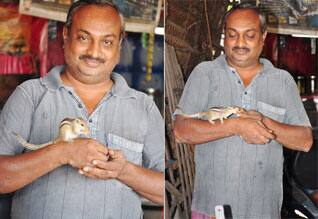






 இமெயில்
இமெயில் பிரதி
பிரதி



